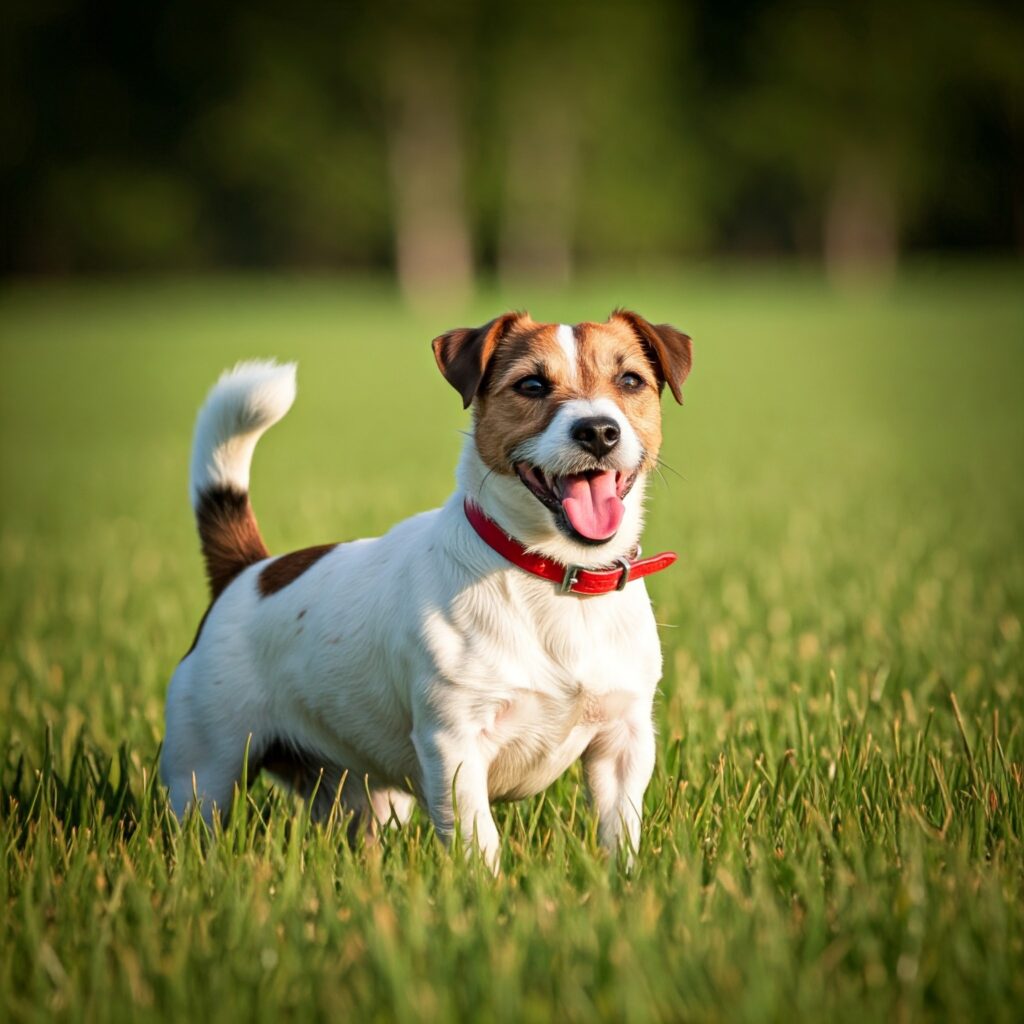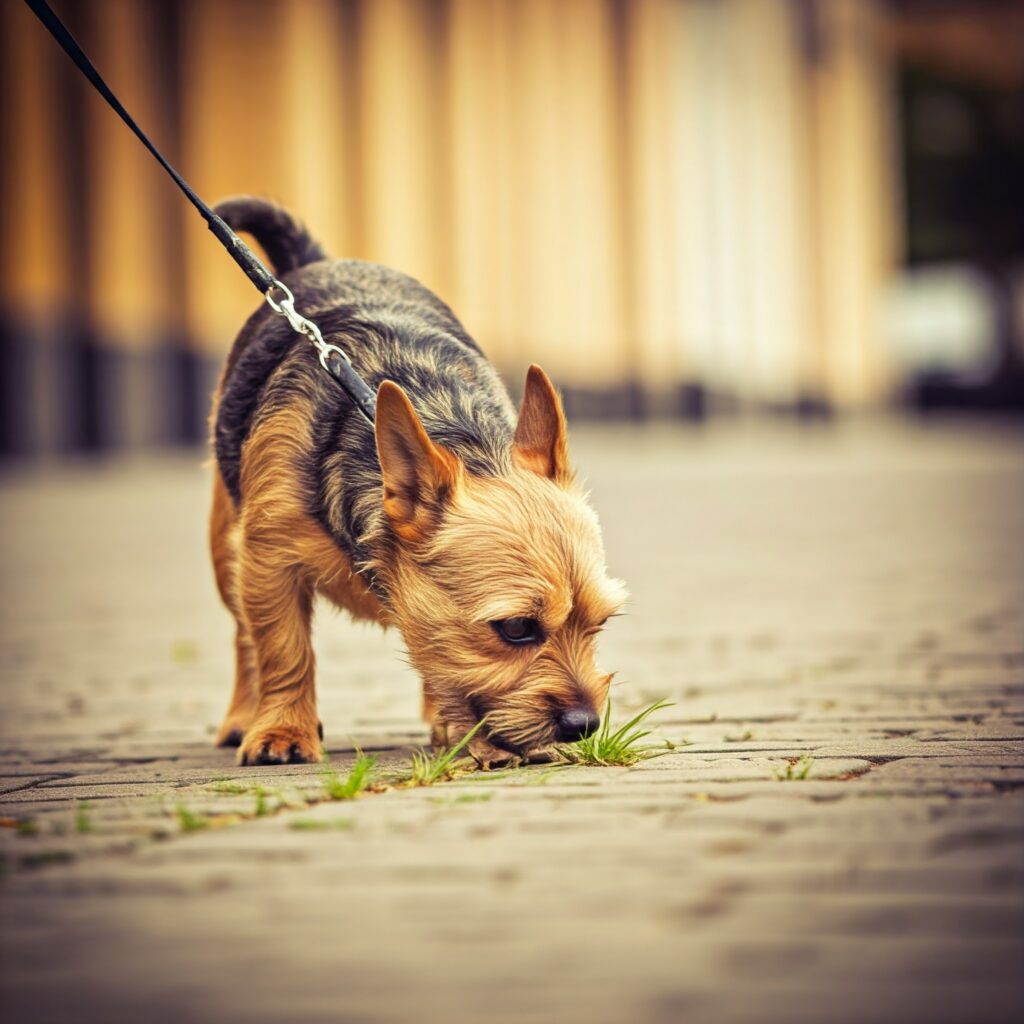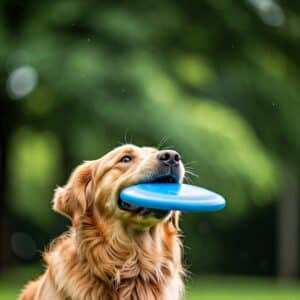Dog owners have likely encountered this behavior: you’re out on a walk, your dog suddenly stops, sniffs the ground, and starts munching on grass. For many, this behavior seems odd. After all, dogs are carnivores—or at least omnivores—so why would they eat something like grass? While it’s a common sight, the exact reason why dogs engage in this peculiar act is still a topic of debate. However, several theories and studies shed light on this behavior, and in this blog post, we’ll explore some of the most common explanations.
1. Ancestral Instincts: The Evolutionary Perspective
One of the leading theories behind why dogs eat grass is linked to their evolutionary history. While dogs today are domesticated and receive well-balanced diets, their ancestors weren’t so lucky. Wild dogs and wolves would eat whatever they could catch, including prey like rabbits, rodents, and birds. These animals often had plant matter in their stomachs, so by consuming the entire prey, early canines inadvertently ingested plants as part of their diet.
Over time, this behavior may have evolved into an instinct for some modern dogs, even though they no longer need to hunt for food. Eating grass could be a way of mimicking this ancestral habit, even if it serves little practical purpose in their modern lives. Essentially, dogs might eat grass because their wild counterparts did, and the behavior has persisted through generations.
2. A Natural Digestive Aid
Another prevalent theory is that dogs eat grass to aid in digestion or to relieve gastrointestinal discomfort. Many dog owners have observed their pets eating grass and then vomiting shortly afterward, leading to the belief that dogs do this to make themselves throw up when they feel unwell.
In some cases, grass consumption may serve as a form of self-medication. If a dog’s stomach is upset, eating grass might stimulate vomiting and help the dog expel whatever is causing the discomfort. It’s worth noting that not all dogs vomit after eating grass, and in those cases, it could simply mean the dog’s digestive system processes the plant material without issue. However, when vomiting does occur, it often follows a rapid gulping of grass, suggesting that the dog may be deliberately seeking relief.

3. Filling Nutritional Gaps
While many dogs are fed a nutritionally balanced diet, some dogs may still seek out nutrients that they instinctively feel are lacking. Grass contains trace amounts of essential vitamins and minerals like fiber, which can aid in digestion. A deficiency in fiber or other nutrients may prompt some dogs to eat grass as a way to compensate for what’s missing in their diet.
This theory is supported by the fact that many dogs who eat grass seem to do so more regularly than others, indicating it might be a habitual response to some dietary need. If a dog is not getting enough fiber, for example, eating grass could help promote bowel movements and ease constipation.
4. Curiosity and Exploration
Let’s not forget that dogs are naturally curious creatures. For many dogs, especially puppies, the world is full of things to explore—and taste. Dogs use their mouths to investigate objects, and grass may simply be one of the many things they decide to chew on during their explorations.
In this case, eating grass could be less about hunger or digestive relief and more about a dog’s natural curiosity. The texture, smell, and even the taste of grass may appeal to some dogs, leading them to chew on it as part of their exploratory behavior. For these dogs, munching on grass might be as instinctual as sniffing a new toy or licking their owner’s hand.
5. Boredom or Behavioral Issues
In some cases, dogs may eat grass as a result of boredom or to seek attention. Dogs left alone for long periods or dogs without adequate mental or physical stimulation may resort to unusual behaviors, including grass eating. This is more likely to be seen in dogs that are left in yards for extended periods with nothing else to do.

If a dog consistently eats grass in these situations, it may be a sign that the dog is seeking out any form of activity or mental engagement. Ensuring your dog has plenty of toys, regular walks, and opportunities for interaction can help curb this kind of behavior.
6. The Taste and Texture of Grass
It’s also possible that some dogs eat grass simply because they enjoy it. While grass doesn’t have much flavor by human standards, dogs have different taste buds and might find it appealing. Some grasses may also have a satisfying texture that dogs like to chew, much like they enjoy chewing on sticks or toys.
For dogs that appear healthy, happy, and well-fed, their grass-eating might just be a matter of personal preference. They enjoy the act of chewing and eating the grass itself, much like humans enjoy a snack or a crunchy treat, even if they’re not particularly hungry.
7. A Sign of Anxiety or Stress
Dogs, like humans, can experience anxiety or stress, which may manifest in various ways, including eating grass. For dogs that are anxious, repetitive behaviors like chewing or licking are common self-soothing mechanisms. Grass-eating could be another outlet for this stress relief, especially if a dog doesn’t have access to toys or other chewable items.
If you notice that your dog eats grass more frequently during stressful situations—such as thunderstorms, trips to the vet, or when left alone—it could be a sign that the behavior is anxiety-related. In these cases, addressing the underlying anxiety through training, environmental enrichment, or even consulting with a veterinarian or animal behaviorist can help reduce or eliminate the behavior.
Is Grass Eating Harmful?
In most cases, eating grass is not harmful to dogs. Veterinarians generally agree that grass-eating is a common and relatively benign behavior. However, there are a few things to watch out for. Grass treated with pesticides or herbicides can be toxic to dogs, so it’s important to be mindful of where your dog is grazing. Additionally, some plants commonly found in lawns or gardens can be toxic to dogs, so ensuring your yard is free of harmful plants is crucial.
If your dog is eating grass frequently and vomiting often, it’s a good idea to consult your vet. While occasional grass eating is considered normal, repeated vomiting could be a sign of an underlying health issue that requires attention.

How to Manage Grass-Eating Behavior
If you’re concerned about your dog’s grass-eating habits, there are a few steps you can take to manage the behavior. First, ensure your dog is getting a balanced diet with adequate fiber, as this could reduce their desire to eat grass. Incorporating more vegetables or high-fiber foods into your dog’s meals may help.
Next, provide plenty of mental and physical stimulation. Dogs that are well-exercised and engaged in activities are less likely to eat grass out of boredom. Interactive toys, puzzles, and regular playtime can keep your dog’s mind occupied.
Finally, monitor where your dog is eating grass. Make sure they are in areas that haven’t been treated with chemicals or contain toxic plants. If the behavior becomes excessive or is accompanied by other symptoms, consulting a veterinarian is always a wise course of action.
Conclusion
While there is no single answer to the question of why dogs eat grass, several plausible explanations exist. From evolutionary instincts to digestive aids, curiosity, or even just the enjoyment of the act, dogs have their reasons. In most cases, grass eating is harmless, but it’s always a good idea to observe your dog’s behavior closely and ensure they’re not ingesting anything that could cause harm.
If your dog’s grass-eating habits concern you, providing a balanced diet, plenty of mental and physical stimulation, and regular veterinary checkups can help manage the behavior. Ultimately, this quirky habit is just one more way our canine companions keep us on our toes.






